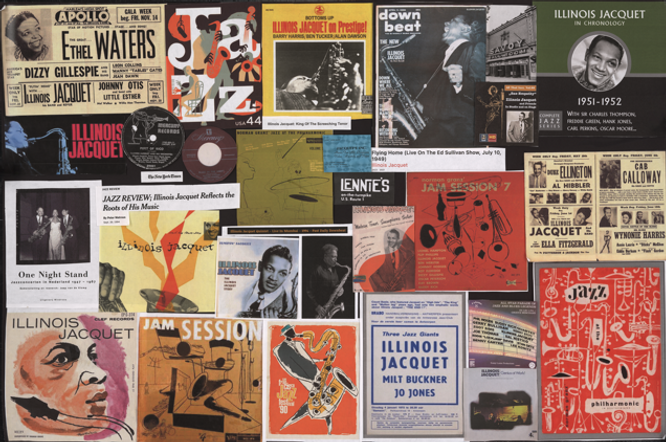

Who was Illinois Jacquet
(1922-2004)

Early Life & Career Beginnings
Jean-Baptiste "Illinois" Jacquet was born on October 31, 1922, in Broussard, Louisiana, and raised in Houston, Texas. He started performing at a young age with his father's band. He studied drums and alto saxophone in high school before joining Milt Larkin’s band. His professional career launched with his famous 1942 solo on “Flying Home” with Lionel Hampton, making him an international sensation at just 19 years old.
Groundbreaking Influence & Musical Innovation
Jacquet's impact on jazz and beyond was revolutionary. In 1944, during a benefit concert, he extended the upper range of the tenor saxophone by two and a half octaves, an improvisation that laid the groundwork for Rhythm and Blues and Rock and Roll. His powerful, electrifying performances were iconic, but he was also a masterful balladeer, known for his soulful depth. His career included stints with legends like Cab Calloway and Count Basie, and he led his own successful bands, recording hits on major labels such as Aladdin and Apollo. In the 1960s, he even added the bassoon to his repertoire.
Activism
Jacquet pushed back against Jim Crow laws in Houston. After booking his band to play at the Rice Hotel, he protested against management's rule that African Americans should enter the premises through an alley door. He issued an ultimatum: either allow his all-black orchestra to access the hotel through the main entrance or he would cancel the engagement. The Rice Hotel agreed to suspend the Jim Crow rule for Jacquet's band.
Later Career & Legacy
In 1983, inspired by a lecture at Harvard, Jacquet formed the Illinois Jacquet Big Band. The group toured globally, earning a Grammy nomination for their album Jacquet's Got It! and were featured in the 1991 documentary Texas Tenor: The Illinois Jacquet Story. The band held a long residency at The Tavern on the Green and performed at President Clinton's Inaugural Ball in 1992, where Clinton famously jammed with Jacquet. His late career was marked by numerous accolades, including Lincoln Center's Award for Artistic Excellence and an honorary doctorate from The Juilliard School in 2004. Jacquet's final performance was at Lincoln Center's Midsummer Night Swing Series, a tradition he had closed for 16 years. His enduring legacy lives on through The Illinois Jacquet Foundation and the multitude of musicians and jazz fans he influenced around the world.



